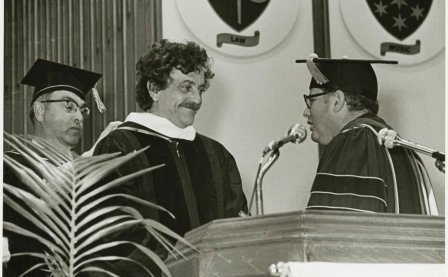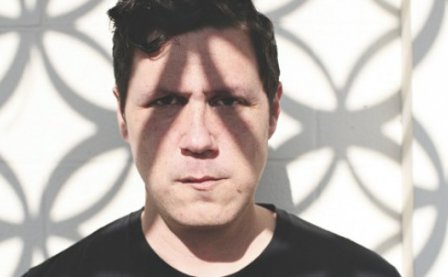Over a little more than the past decade, Seattle folk singer Damien Jurado has been indie folk's steadiest craftsmen, pulling bleak, haunted songs from the most crushing of everyday moments, the between-the-cracks stuff: desperate affairs, air-show disasters, jealous vandalism. While shuffling from his awkward early home on Tooth & Nail Records to Sub Pop records in the late ’90s cemented his reputation as no mere moralizer, his subsequent move from Sub Pop to Secretly Canadian in the early 2000s suggested that the gray areas where his songs dwelled were far more subtle than easily marketed. There was drama, sure, but it was sepia toned and Raymond Carver-esque, stripped of the "whoa, wait a second" shots of Huey Lewis' dick that made Robert Altman's adaptation of Carver's stories Short Cuts seem somewhat less subdued than the source material.
"How does it feel to be what you sing about," Jurado sings on "Coats of Ice," showcasing Jurado's thematic re-evaluation with Caught in the Trees. But trading in the fictional vignette format that earned those ever-present Carver comparisons in the first place for diary-style confession proves a lot less surprising than one might think. The Jurado characters here are all too familiar: envious lovers, pill-poppers, booze hounds, gun toters, couples dissatisfied with their fragile relationships. "I'm playing for keeps/ The characters are real/ So don't write me off," pleads Jurado on "Last Rights." And in a classic case of "it's not what you say, it's how you say it," his aching, fragile voice commands the same attention from the listener for which his wounded characters of his discography have always asked.
Carrying over the same supporting cast as his last LP, the excellent And Now That I'm In Your Shadow, proves a wise choice for Jurado. While notable contributors like Rosie Thomas and Dave Bazan have added classy touches to his past work, Jenna Conrad and Eric Fisher contribute a vital liveliness to the proceedings, from the woozy piano and chipper harmonies of jaunty opener "Gillian Was a Horse" (co-written by Conrad) to the gorgeous swell of cello and piano that ends "Everything Trying." Northwest mainstays David Broecker and co-producer Casey Foubert add fleshy contributions as well, filling out the sound on tracks like Conrad's "Best Dress" with a meaty, Crazy Horse sheen.
Even when the instrumentation oversteps its boundaries, like on the extended rock-out bridge of "Sheets," it provides the adequate backbone Jurado's lyrics need to stand. While tracks like "Trials" and "Caskets" offer more minimal ruminations, both sounding uncannily like Elliott Smith, even these stripped-down compositions are suffused with a warmth and energy Jurado's records have sometimes, and often purposefully, avoided. Around the time of And Now That I'm in Your Shadow, Jurado and crew started saying things like "Damien Jurado is a band." And while the idea read impossibly silly, Caught in the Trees goes a long way to validate that exact sentiment -- in fact, closer "Predictive Living" comes right out and says it: "Just when you thought you had me pegged/ Thinking I'm the same/ Then I go and change/ Three become a name." The interplay between Jurado and his supporting cast doesn't just underscore the point of Jurado's songs; for the first time, it sounds like it might be the point of Jurado's songs.
"You'll be happy to know, the situation's worse," Jurado sings on the aforementioned "Last Rights." Judging from Caught in the Trees, it would appear that the last few years of Damien Jurado's life have been a lot like a Damien Jurado album. But whereas his previous output was content to linger in the darkness, the Jurado character on Caught in the Trees seems desperate to find solace. "Predictive Living" finds Jurado "Forcing thoughts to pen," while its self-referential mentions of hotel rooms, killing off husbands, rehearsals, and broken chairs mine his repertoire. His humble assertion that he's just rearranging the chords doesn't sound defeatist -- it sounds comfortable, it sounds second nature, and it sounds full of the grace and humanity Jurado has always bestowed upon his desperate characters. Caught in the Trees might not save any lives, but it sure sounds like it has saved Jurado's.
More about: Damien Jurado




